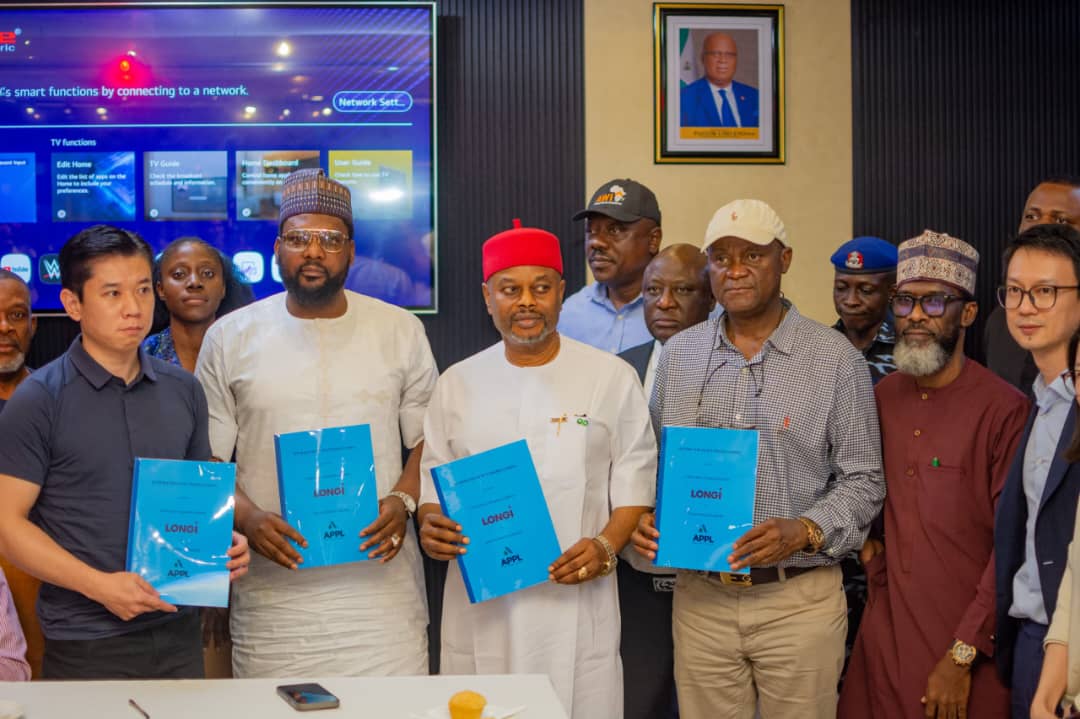ABUJA – In Nigeria, the law governing party defection, especially by federal lawmakers, is quite specific. According to Section 68 (1)g of the 1999 Constitution of the Federal Republic of Nigeria (as amended), a federal lawmaker who defects from the party that sponsored their election to another party can have their seat declared vacant.
This provision aims to prevent lawmakers from switching parties without a valid reason, which could undermine the stability of the government and the party system. However, there are some exceptions to this rule. For instance, if a lawmaker’s party merges with another party or splits into factions, they may be allowed to switch parties without penalty.
It’s worth noting that the Nigerian courts have had to intervene in several cases involving party defection, and their rulings have helped shape the country’s laws on this issue. Overall, Nigeria’s laws on party defection aim to balance the rights of individual lawmakers with the need to maintain stability and accountability in the country’s political system.
Last week Wednesday, Senator Chinedu Munir Nwoko of the Peoples Democratic Party, PDP, defected to the ruling All Progressives Congress, APC. The Senate suspended its House Rules to allow Nwoko’s family members and supporters entrance to the hallowed chamber of the Senate.
Like never before, the President of the Senate, Senator Godswill Obong Akpabio, made a show of Nwoko’s defection into APC, seeing it as an alibi to lash back at the main opposition party which has, for one reason or another, over the years, been unable to put its house in order since it’s ignoble exit from power in 2015.
It was Ned Nwoko that first stirred the hornets nest in his declaration speech where he suggested an ad-hoc committee of the Senate to look into the lingering crisis of the Peoples Democratic Party to avoid the danger of one party State.
“The PDP, which once stood as a formidable platform for democratic participation and national development, has unfortunately been engulfed in persistent crises, ranging from internal divisions to a lack of clear leadership and direction. These unresolved conflicts have weakened its ability to function as an effective opposition, thereby threatening the very fabric of our democracy.
“Mr. President, democracy thrives on a strong and credible opposition that keeps the government in check, promotes accountability, and ensures that the voice of all Nigerians is heard. The continued deterioration of the PDP raises serious concerns about the future of our multi-party democracy. If urgent steps are not taken to address this national emergency, Nigeria risks sliding into a dangerous one-party system, which history has shown to be detrimental to governance and national stability.
“In view of this, I urge the Senate to take this matter seriously by setting up an Ad-Hoc Committee to investigate the crisis within the PDP and recommend a way forward to safeguard our democracy. This committee should examine the root causes of the party’s internal implosion, engage relevant stakeholders, and propose reforms that will ensure the survival of a viable opposition in Nigeria,” he said.
However, Nwoko’s defection did not go unchallenged by the Minority Leader of the Senate, Senator Aba Moro, PDP Benue South who said the defection of the Constitution of the Federal Republic of Nigeria because there was no condition stipulated by the Constitution for defection to happen.
But the Leader of the Senate, Senator Opeyemi Bamidele, quickly pointed out the crisis in the PDP over the position of National Secretary, which matter, is already in court is enough evidence for Ned Nwoko to dump the party.
Senator Moro however replied that the PDP as a law abiding party has already obtained a court ruling confirming Sam Anyanwu as the authentic Secretary of the party as well as a stay of execution of the Appeal Court judgement on him.
Akpabio later decided not to set up the ad hoc committee to look into the immediate and remote causes of crisis in the PDP because the matter is already in court.
Three Senators from Delta State were sworn into the Senate 10th Assembly in June 2023. Two of them are members of the ruling All Progressive Congress, APC, namely, Senator Omueya Dafinone Edeh, APC Delta Central, and Senator Ewomazino Joel Onowkpo Thomas, APC Delta South. Senator Nwoko, the only PDP Senator from the state, has now joined the train of the ruling party, leaving the PDP without a senator in a state where it held sway for many years.
At the moment, Governor Oborevwori Sheriff Francis Orohwedor is left alone as a PDP governor without a single PDP Senator.
The wave of defection from one party to another in the National Assembly has been that of different strokes for different folks. In the House of Representatives, members have been defecting from one political party to another at will and unhindered by the leadership. This has become a regular event in the house since the five PDP governors defected to All Progressives Congress (APC) at the peak of the intra -party crisis that rocked PDP in 2013.
The 1999 Constitution (as amended) expressly advanced anti-defection provision in sections 68(1)(g) and 109(g) so as to deter elected legislators from engaging in such. It states as follows; “A member of the Senate or of the House of Representatives shall vacate his seat in the House of which he is a member if – being a person whose election to the House was sponsored by a political party, he becomes a member of another political party before the expiration of the period for which that House was elected; Provided that his membership of the latter political party is not as a result of a division in the political party of which he was previously a member or of a merger of two or more political parties or factions by one of which he was previously sponsored” (LFN,1999).
In spite the above provision of the 1999 Constitution (as amended) in section 68(1)(g), the law in section 68(2) makes the provisions of section 68(1)(g) difficult to take effect by stating thus; “The President of the Senate or the Speaker of the House of Representatives, as the case may be, shall give effect to the provisions of subsection (1) of this section, so however that the President of the Senate or the Speaker of the House of Representatives or a member shall first present evidence satisfactory to the House concerned that any of the provisions of that subsection has become applicable in respect of that member”(LFN, 1999). This clause gave rise to the incessant defections of legislators as it provides an opening for easy defection.
From the foregoing provisions of the law [section 68(1)(g) and (2)], three issues of concern arise; one, that the use of the phrase “as a result of a division in the political party” in section 68(1)(g) is suggestive of encouraging defections rather than controlling it. Furtherance with the phrase, politicians have easily exploited it by creating imaginary divisions themselves and using it as a yardstick for defection, without presenting evidence showing that they have exploited every party crisis resolution mechanism to the leadership of either chambers; and two, it is impossible for the leaders of the various houses (Senate and House of Representatives) to declare the seats of defecting legislators vacant.
The reason for this is because defections in Nigeria are always from the opposition to the ruling party, therefore, mandating the leaders of the various houses, who themselves are members of the ruling party to declare the seats of their new “converts” vacant will be difficult, if not impossible.
On the basis of this, therefore, it is important to introduce better and stricter measures that will help in the control of elected legislators’ defections in the country, just as it obtains in some other countries. The aim is not to prohibit defections but to control and ensure that elected legislators do not incessantly defect from one party to another as witnessed in recent times. According to Jinadu, (2014), in India, a seat is declared vacant if an elected member joins another political party after the end of 6 months and can stand disqualified from serving in parliament for withdrawing membership of his original political party, with or without reasons. In Namibia, Nepal and Singapore, the anti defection clauses punish defectors by requiring them to give up their seats in the parliament upon notification from the political party that the lawmaker has either abandoned the party or was expelled and/or resigned from the party on whose platform he was elected to the parliament (LFN, 1999). In Israel, the anti-defection provisions defer the penalty for unlawful defection until the next election where the defector would be debarred from contesting in an election to enter the next parliament. It might help curtail this trend since the existing ones have not achieved much.
With the return of Nigeria to democracy in 1999, great hopes of democratic dividends were ushered. This is because the return to democracy, after years of military dictatorship, afforded the country the opportunity to launch a new democratic strategy amongst which includes emergence of a multi-party democracy.
However, the increasing rate of defections from one party to another by elected legislators has continued to generate divergent opinions as to its implications on our emerging democracy. This trend has been described by many as the bane of our democratic process and therefore, there is a dire need to control it in order to protect the sanctity of our democratic process.




 1 week ago
8
1 week ago
8









 English (US) ·
English (US) ·